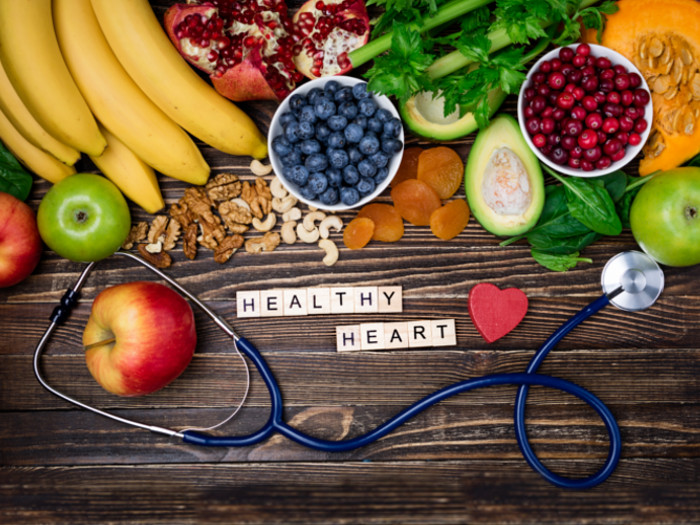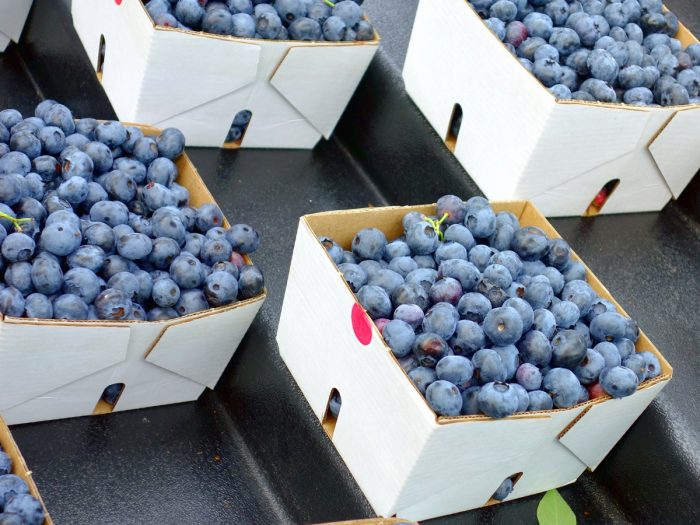The health of our internal organs is one of those things we all take for granted until it’s too late. We think our youth and vitality will never pass but in truth, even though you’re not feeling it now, every dietary or lifestyle decision will affect you in the long run.
Fortunately, in our day and age, people are more interested in their lifestyle and habits. The number of people searching for a health-related subject is on the rise, while young people (especially millennials) and healthier and more physically active than ever.
Top 4 Internal Organs
When it comes to preserving our health, it’s important to take a systematic, patient approach and deal with each of the internal organs separately, each with its needs. Occasionally some health issues are intertwined, so by focusing on one organ, you might be inadvertently preventing another more serious health problem. The top four internal organs that we should pay more attention to comprise the kidneys, heart, lungs, and the liver. Let us look at it in detail:

Anatomy is the science that studies the structure of the body. Photo Credit: Shutterstock
Kidneys
The kidneys are two fist-sized organs below the rib that act as your natural filtration system. Each day, they filter about 150 Litres of blood to produce 2 Litres of urine. They are one of the most important organs that we possess and are vital to our survival.
Kidney Diseases
Neglecting them for long periods can lead to:
- Kidney infections
- Kidney failure
- Kidney disease
- Kidney stones
These health conditions and other ailments that will require an expensive trip to the doctor. Famously, Selena Gomez was diagnosed with lupus nephritis, a variant of the disease that targets the kidneys. Over 60 % of lupus patients are affected by it. The singer/actress is on recovery and received a kidney transplant in September 2017 from a friend.
Guidelines For Kidney Health
The first thing you need to do to preserve your kidneys is staying hydrated. A good indicator of proper hydration habits is the color of the urine – If it’s any darker than straw-colored, drink more fluids. As a side note, make sure to not overdo it. Drinking more than six glasses of water per day is redundant and in some cases, it might do more harm than good.
Moving on, a stable and healthy diet can do wonders for your kidney health. Foods that possess antioxidant qualities (also called ‘’super foods’’) can eliminate free radicals and protect the body from various types of infections and diseases.
Some examples of super foods you should consume are as follows:
• Cabbage contains phytochemicals, an element that protects the body from free radicals.
• Onions have plenty of flavonoids (quercetin, in particular) that prevent heart diseases.
• To reduce kidney inflammation, blueberries are a good source of anthocyanidins and vitamin C.
• Strawberries have phenols, which maintain the cellular integrity of the body and kidneys in particular.
Heart
The heart is an important organ that pumps blood throughout the body, providing it with oxygen and protecting it from various ailments. If not taken proper care of, it can lead to coronary artery disease, heart failure, chest pain, hypercholesterolemia, heart arrhythmia, and cardiovascular disease.
Diet Guidelines For Heart Health
With that being said, it is common knowledge that the most delicious foods are of the same type bad for your heart. High sodium and high-calorie foods such as fast foods, processed and refined should be avoided as much as possible. If resisting them is hard (as is for everybody), try adjusting the portions. Eat fewer high-calorie foods and more low-calorie products such as fruits and vegetables. For example, focus on canned fruit, especially if it’s packed in low-calorie juice or water, canned vegetables or pick them frozen (preferably) fresh. Limit your intake of sugary frozen fruits, coconuts and vegetables dipped in sauces.
Fiber is an important ingredient not only for the heart but for the body in general. Fiber can reduce the levels of cholesterol, maintain blood pressure and prevent certain heart diseases by extension. Whole grains are rich in fibers.
Here are a few examples of grain products that have copious amounts of fibers:
• Whole-grain pasta
• Oatmeal
• Whole-wheat flour
• Buckwheat, brown rice and barley
• Whole-grain bread
And here are a few products that you could limit:
• Muffins
• Biscuits
• Cakes
• Pies
• Egg Noodles
Another alternative is to reduce the consumption of trans fats. Without getting too technical, trans fats (or trans fatty acids) are unsaturated chemicals that are found in fast foods. Experts split them into two large categories: natural and artificial trans fats. The former is produced naturally in the stomach of some animals and the food made out of them, like meat and milk, while the latter is produced industrially for wide consumption by adding vegetable oils to solidify them. Trans fats can raise your levels of bad cholesterol, which could put your health at risk.
Bill Clinton, who served as the 42nd president of the United States, has had surgery twice due to blocked arteries. In 2004, he underwent quadruple bypass surgery. Since then, the former president has adopted a healthier lifestyle, losing a lot of weight and following a dated based on vegetables, beans, and fruit.
A good method to limit trans fats consumption is to carefully portion how many solid fats are added to food when cooking. Also, cutting the fat off the meat, adding low sodium salsa to baked potatoes or spreading fruits low on sugar on toast are good habits to develop in the long run.
Of course, fats are not necessarily bad. Here’s a list of fats that, consumed in sensible proportions, can do wonders for the heart:
• Avocados
• Nuts
• Seeds
• Olive oil
• Canola oil
• Light margarine
Fats to avoid:
• Gravy
• Bacon
• Coconuts
• Butter
• Lard
• Palm kernel oils

Exercising daily can help improve heart health. Photo Credit: Shutterstock
Lungs
The lungs are as fragile as they are important. An intricate system of thousands of tubes, sacs, and alveoli power them throughout the day, absorbing air and eliminating what’s not useful to the body continuously.
Lung Diseases
Before getting into the specifics, as obvious as it’s been for the last 60 years, this needs to go on the record: do not smoke. Experts have linked smoking to cancer over half a decade ago, as well as demonstrating that it clogs the airways and damages the cilia, which acts as a kind of a filtration system that eliminates pollutants and heal infections. [1]
Guidelines For Lung Health
Exercising will not compensate for smoking, but it does strengthen the cardiovascular system, improving the efficiency of the lungs in the process. What’s not so obvious to many people is that many foods indirectly affect the health of the lungs. According to the National Cancer Institute, high-fat diets can lead to lung cancer, while fruits have been shown to prevent it. [2] [3]
Together with avoiding smoking and exercising daily, there are a few dietary tips that can preserve the lungs. Staying hydrated is important because water acts as a cleansing agent, improves the blood flow and clears the area where the mucus is stored.
If you’re concerned about lung tumors, pomegranates are known to slow their growth. When it comes to vegetables, kale, broccoli, cauliflower, and cabbage can help potentially prevent cancer. Consuming magnesium regularly in the form of nuts, seeds, and beans, while providing the aforementioned fatty acids, keep the lungs functioning properly. Vitamin C, which can be found in carrots and oranges, lower the risk of lung diseases. [4]
Don’t think lung diseases are reserved for the elderly. Amy Winehouse was diagnosed with early emphysema when she was just 24. Extensive touring, smoking and various other factors along with a generally unhealthy lifestyle contributed to the development of her disease.
Liver
The liver is one of the most important internal organs that manage the metabolic processes in the body. Old and damaged blood cells are sent to the liver, destroyed and promptly eliminated from the system, making way for newer ones.
Liver Diseases
High consumption of alcohol causes cirrhosis, while other forms of neglect cause hepatitis, liver failure, chronic liver disease, and fatty liver.
Diet Guidelines For Liver Health
As always, there are some things that you can do to prevent the diseases mentioned above. A group of Japanese researchers found out that consuming 5 to 10 cups of green tea daily improves the overall health of the liver. Another study states that high-oxidant tea can improve the liver enzyme after 12 weeks. [5]
Moving on, high antioxidant fruits such as grapefruits protect the liver cells and reduce inflammation. By consuming anthocyanins from cranberries and blueberries 3 to 4 times a week, the liver is protected from damage and scar tissues. [6]

Blueberries are the top horticulture crop in Canada. Photo Credit: Shutterstock
Grapes also lower inflammation, but in concentrated form. The prickly pear, an exotic species of comestible cactus used in traditional medicine, was the subject of a 2004 study that demonstrated how this fruit regulates cholesterol levels and compensates for the negative effects of alcohol consumption. [7]
Conclusion
Thanks to science, we now know that a bacon and eggs-based breakfast is a thing of the ’50s, cutting down on fat will help prevent heart diseases, smoking cigarettes are linked to lung cancer and antioxidants halt infectious progressions and heal them. In our current era of fast eating and living city lives, stressed out and focusing on our careers, our health usually takes the second spot in our list of priorities. Thankfully, science and medicine progress at an incredible rate, and we’re more aware of the health risks posed by our chaotic habits than ever before. [8]
